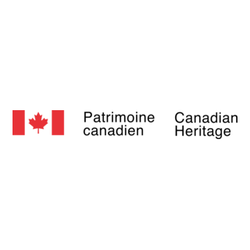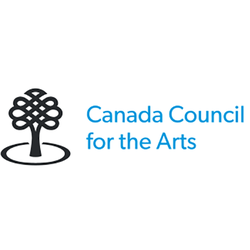
Open
Canada Cultural Spaces Fund (CCSF)
Last Update: December 9, 2025
Canada
Funding to create or upgrade cultural spaces
Grant and Funding
At a glance
Funding available
Financing goals
Reduce the ecological footprint
Eligible Funding
- Up to 50% of project cost
Timeline
- Open Date : November 14, 2019
Eligible candidates
Eligible Industries
- Information and cultural industries
- Arts, entertainment and recreation
Location
- Canada
Legal structures
- Non-profit
- Public or Parapublic institution
Annual revenue
- All revenue ranges
Organisation size
- All organization sizes
Audience
- Indigenous Peoples
- Persons with Disabilities
- Language Minorities
- Canadians
Non-profit candidates
Sector of operation
- Culture and Arts
Target groups
- General public
- Indigenous peoples
- People with disabilities
- Rural / Remote communities
- Artists / creatives
- Nonprofits / charities
- Minority groups
Revenue structures
- All structures
Scope
- Local
- Municipal
- Regional
- Provincial
- National
Overview
Get funding for up to 50% of the costs of construction or renovation of physical spaces used for arts and heritage related creation, presentation, preservation and exhibition.
Activities funded
- Construction or renovation of arts or heritage facilities, including creative hubs.
- Acquisition of specialized equipment for arts or heritage use.
- Development of feasibility studies for the construction or renovation of arts or heritage facilities, including creative hubs.
Examples of admissible projects:
$ 150,000
Acquisition of specialized equipment for a community cultural center
$ 400,000
Renovation and expansion of a local history museum to add new exhibition halls
$ 250,000
Renovation of the historic museum to improve accessibility and exhibition spaces
$ 325,000
Modernization of a performing arts center with new staging and lighting equipment
$ 375,000
Construction of a new art gallery focusing on indigenous artworks
$ 60,000
Feasibility study for the renovation of a historic theatre
Eligibility
- The applicant must be a not-for-profit arts or heritage organization, incorporated under the Canada Not-for-Profit Corporations Act or equivalent provincial/territorial legislation, with at least two years of professional activity and programming accessible to Canadians.
- The applicant may also be a not-for-profit organization proposing to develop and manage a creative hub; a provincial/territorial government, municipal administration, or their agencies; or an Indigenous (First Nations, Inuit, or Métis) governing body or agency that supports professional artistic or heritage activities.
- The organization’s mission and governance documents must clearly support professional artistic, creative, or heritage practices.
- Projects must involve the construction/renovation of arts or heritage facilities or creative hubs; the acquisition of specialized equipment; or the development of feasibility studies for such purposes.
- For construction or renovation projects, the applicant must own the property or have a long-term lease (minimum five years).
Who is eligible?
- Not-for-profit arts organizations operating in a professional manner
- Not-for-profit heritage organizations operating in a professional manner
- Organizations developing and managing creative hubs (not-for-profit)
- Provincial or territorial governments, municipal administrations, and their agencies
- Indigenous (First Nations, Inuit, or Métis) governing bodies and their agencies supporting professional artistic or heritage activities
Who is not eligible
- For-profit organizations (except as tenants within creative hubs managed by eligible not-for-profits).
- Companies or organizations primarily engaged in religious worship or congregational activities.
- Organizations seeking funding for projects related to regular or routine building maintenance.
- Entities seeking support for projects primarily involving cemeteries or tourism signage.
- Businesses applying for renovations or construction on buildings they do not own or hold a qualifying long-term lease (minimum of 5 years).
Eligible expenses
- Administrative costs directly related to the project, including salaries and project audit.
- Professional fees such as architectural, engineering, technical services, project management, and environmental assessment.
- Construction and/or renovation costs—including property acquisition and transfers, project’s interest on short-term financing, demolition, excavation, materials, and labour.
- Fire, safety and security systems installation.
- Systems and measures to improve accessibility and mobility.
- Environmental practices and sustainable construction.
- Specialized equipment purchases and installation (e.g. sound and lighting, staging and rigging, multimedia, environmental control systems, storage, exhibition cases/panels, hanging systems, hygrothermograph).
- Fixed or removable seating and stage curtains.
- Initial training related to operation of specialized equipment.
- Purchase and installation of integrated data collecting and ticketing systems.
- CCSF acknowledgement signage (for contributions over $100,000).
- Professional fees for feasibility studies, including design and market analysis.
Eligible geographic areas
- All provinces and territories in Canada
Selection criteria
- Impact on the availability and quality of cultural spaces, including improvements to physical conditions and technological or safety features.
- Enhancement of public access to professional arts and heritage experiences, particularly for underserved communities and groups.
- Viability of the project and its long-term financial impact on the organization, including management capacity and confirmation of other sources of revenues.
How to apply
1
Read Guidelines
- Ensure to read the application guidelines thoroughly before proceeding.
- Contact a CCSF advisor for clarification if needed.
2
Prepare Application Package
- Complete the application form, ensuring all eligibility criteria are met.
- Gather all required supporting documents as per the application form checklists.
3
Submit Application
- Choose one method of submission: email, mail, courier, or potentially fax after contacting the CCSF.
- Electronic submissions should be sent to the nearest Department of Canadian Heritage office.
- Mailed submissions must be sent to the nearest office of the Department of Canadian Heritage.
Additional information
- Applications are accepted on a continual basis, with no fixed submission deadline.
- Organizations must maintain all records and documentation for five years in case of audits or program evaluations.
- Applicants are encouraged to contact a CCSF advisor at a regional office for guidance before applying.
- If successful, recipients must acknowledge Government of Canada support in all public communications, in both English and French.
Contacts
info@pch.gc.ca
1-866-811-0055
Canada
Apply to this program
Frequently Asked Questions about the Canada Cultural Spaces Fund (CCSF) Program
Here are answers to the most common questions about the Canada Cultural Spaces Fund (CCSF). This section explains what the program is, how much funding is available, eligibility requirements, application deadlines, and other important details to help you determine if this grant is right for your business.
What is the Canada Cultural Spaces Fund (CCSF)?
How much funding can be received?
What expenses are eligible under Canada Cultural Spaces Fund (CCSF)?
What is the deadline to apply?
Is the Canada Cultural Spaces Fund (CCSF) a grant, loan, or tax credit?
Who are the financial supporters of the Canada Cultural Spaces Fund (CCSF)?
Who is eligible for the Canada Cultural Spaces Fund (CCSF) program?
Who can I contact for more information about the Canada Cultural Spaces Fund (CCSF)?
Where is the Canada Cultural Spaces Fund (CCSF) available?
Are Indigenous Peoples eligible for the Canada Cultural Spaces Fund (CCSF) program?
Apply to this program
More programs like this

Grant and FundingOpen
International Single Sport Events - Hosting Program
Canadian HeritageSupports hosting international single sport events in Canada

Grant and FundingClosed
Creative Export Canada (CEC) — Export-Ready Stream
Canadian HeritageFunding for Canadian creative industry exports

Grant and FundingClosed
Explore and Create — Concept to Realization
Canada Council for the Arts (CCA)Financial support for creative projects

Grant and FundingOpening Soon
International outreach — Travel
Canada Council for the Arts (CCA)Empower Canadian artists and arts organizations to expand global connections and opportunities

Grant and FundingClosed
Creative Export Canada (CEC) — Export Development Stream (EDS)
Canadian HeritageCanadian Creative Export supports global market expansion for creative industries

Grant and FundingClosed
Sports Support Program - Community Sports for All Initiative
Canadian HeritageFunding supports sport participation for under-represented community groups

Grant and FundingClosed
Arts Abroad — Residencies
Canada Council for the Arts (CCA)Grant for international arts research or networking

Grant and FundingOpen
Supporting Artistic Practice — Sector Innovation and Development
Canada Council for the Arts (CCA)Financial support to grow the arts sector

Grant and FundingClosed
Engage and Sustain — Artistic Institutions
Canada Council for the Arts (CCA)Money for artists building public outreach

Grant and FundingOpen
Supporting Artistic Practice — Support Organizations
Canada Council for the Arts (CCA)Funding to support Canadian art practices
Sign up to our platform to access the Canada Cultural Spaces Fund (CCSF) information sheet for free
Get access to 4,000+ programs, practical guides, personalized alerts, and an AI assistant to support your grant applications.